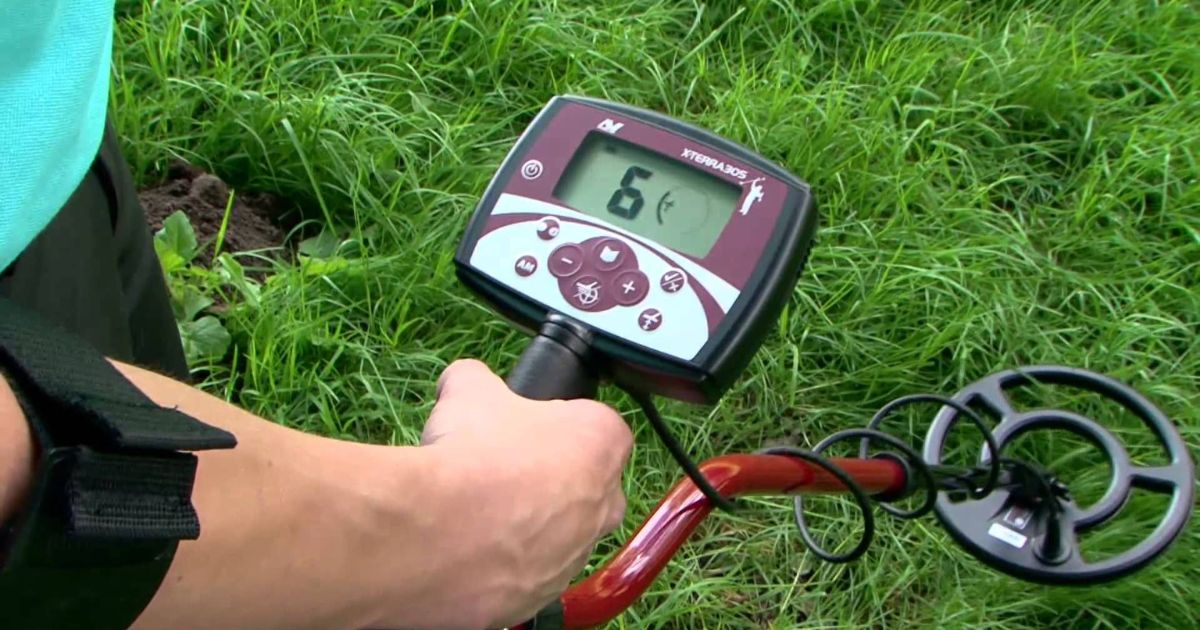A metal detector is a handheld or stationary device that uses electromagnetic fields to locate metallic objects. It emits a magnetic field, and when metal is present, it generates an electric current that signals the presence of metal.
Curious minds often ponder: Can titanium be detected by a metal detector? Imagine the thrill of exploring this question firsthand, embarking on a journey to unravel the mysteries of metal detection. Whether you’re an avid adventurer or simply intrigued by the science behind it.
Metal detectors can generally detect titanium due to its metallic properties. However, the detection depends on the type of metal detector and the amount of titanium present. Titanium is non ferrous, making it more challenging for some detectors, but high-end models with advanced technology can effectively pick up titanium signals.
Properties of Titanium
Titanium is a remarkable metal known for its unique set of properties. As a non-ferrous material, it lacks magnetic properties, distinguishing it from ferrous metals like iron and steel. This non-magnetic nature poses a challenge for traditional metal detectors, which primarily rely on magnetic fields to identify metallic objects.
Despite its non-magnetic characteristics, titanium is not entirely elusive to detection. While it may not trigger alarms on basic metal detectors, advanced technology has allowed for the development of detectors with the sensitivity to pick up signals from titanium. These innovations enable the detection of this versatile metal, expanding the applications of metal detectors in fields where titanium is prevalent.
Metal Detector Mechanism
A metal detector operates on a simple yet ingenious mechanism. It consists of a coil through which electricity flows, creating a magnetic field around the detector. When this electromagnetic field encounters a metallic object, such as titanium, it induces an electric current in the metal.
Metal detectors work based on the principles of electromagnetism. The two main types are Very Low-Frequency (VLF) and Pulse Induction (PI) detectors. VLF detectors use two coils—one to transmit and one to receive signals. They are sensitive to different types of metals due to variations in conductivity. On the other hand, PI detectors use a single coil for both transmission and reception, making them highly effective in challenging environments.
Detecting Titanium with Metal Detectors
Detecting titanium with metal detectors is a fascinating exploration into the capabilities of these devices. Titanium, known for its non-ferrous nature, poses a unique challenge for traditional metal detectors. However, advanced technology has paved the way for improved sensitivity, enabling the detection of titanium with greater accuracy.
In real-world applications, this capability holds significance in various fields, from security screening where titanium is used in certain items, to archaeological and industrial settings where the presence of titanium can have critical implications. As metal detectors continue to evolve, the ability to detect titanium becomes not just a scientific inquiry but a practical necessity in diverse industries, emphasising the ongoing synergy between technology and discovery.
Real-World Applications

Real-world applications of metal detectors span diverse fields, with one of the most common uses being in security screening. Airports, public venues, and government facilities employ metal detectors to ensure the safety of individuals by detecting prohibited items such as weapons or metallic objects.. These real-world applications underscore the versatility and indispensable nature of metal detectors in various aspects of modern life.
In the realm of hobbyist activities, metal detectors are popular among treasure hunters and enthusiasts seeking valuable or historically significant items. Whether exploring beaches for lost jewellery or scanning old battlefields for relics, individuals find joy and excitement in uncovering hidden treasures with the help of these remarkable devices.
Factors Affecting Detection
The effectiveness of metal detection is influenced by various factors that come into play during the process. One crucial factor is the type of metal being sought, as different metals exhibit unique magnetic properties. The composition and size of the object also play a role, with larger or more densely packed metals being easier to detect. Environmental conditions, such as soil composition and moisture levels, can impact detection accuracy.
Sensitivity Levels and Titanium Detection
Sensitivity levels play a crucial role in the fascinating realm of titanium detection with metal detectors. Given titanium’s non-ferrous nature, adjusting the sensitivity settings becomes paramount to enhance the detector’s ability to pick up signals. Finding the right balance ensures that the detector can effectively identify and alert users to the presence of titanium.
Archaeological and Industrial Uses
Metal detectors play pivotal roles in both archaeological and industrial settings. In archaeology, these devices help unearth hidden artefacts and historical treasures buried beneath the earth’s surface, providing valuable insights into ancient civilizations. The precision of metal detectors ensures delicate excavation, preserving historical integrity.
FAQ,S
Will titanium set off metal detectors?
Yes, titanium can set off a metal detector. While titanium is non-ferrous and poses challenges for some detectors, many modern metal detectors, especially those with advanced technology
.
Will a titanium rod in my leg set off a metal detector?
Yes, a titanium rod in your leg is unlikely to set off a standard metal detector. Titanium is non-ferrous and generally does not trigger the alarms in common metal detectors used in security screenings.
What metal is easiest to detect?
Ferrous metals, such as iron and steel, are generally the easiest to detect with a metal detector.
Conclusion
In conclusion, the world of metal detection is a fascinating realm where technology meets exploration. Whether delving into the historical depths with archaeological endeavours or ensuring the safety and quality of industrial processes, metal detectors prove to be indispensable tools. The ability to detect various metals, from ferrous to non-ferrous, opens doors to countless possibilities, making these devices essential in a myriad of applications.
As we navigate the intricacies of metal detection, it becomes evident that advancements in technology continue to refine and enhance the capabilities of these detectors. From the detection of elusive titanium to the precision required for archaeological digs, the evolution of metal detection technology promises continued discoveries and improvements.











